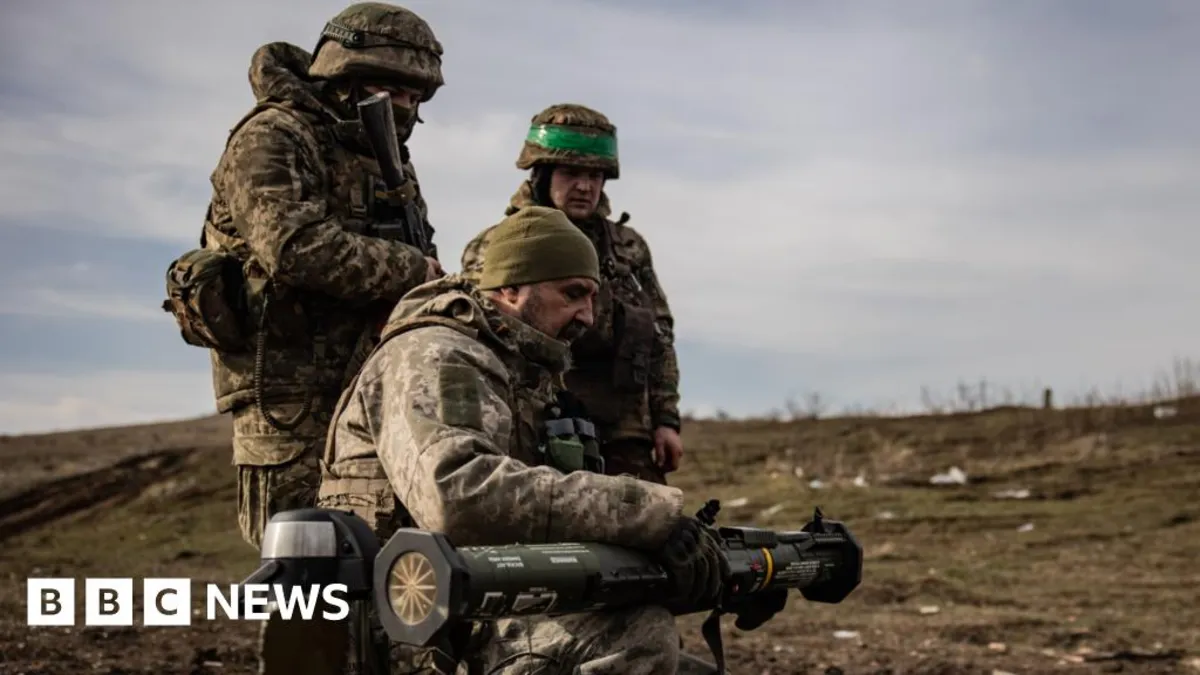
In a recent statement, Ukraine's President Volodymyr Zelensky has publicly accused Russian President Vladimir Putin of actively attempting to undermine diplomatic efforts aimed at achieving an immediate ceasefire in the ongoing conflict. Through a social media post, Zelensky called on the United States to exert greater pressure on Putin, asserting that only through American strength can the war come to an end.
During a press conference on Thursday, Putin indicated his acceptance of the idea of a ceasefire but quickly attached a series of complicated and contentious conditions. He pointed to the Kursk border region, where Russian forces are reportedly regaining territory that was previously occupied by Ukrainian forces six months ago. In his remarks, Putin accused Ukrainian troops of committing serious crimes against civilians—a claim that Kyiv has vehemently denied. He also raised concerns regarding whether Ukrainian forces would exploit a ceasefire to mobilize and resupply their troops, insinuating that such actions could compromise the ceasefire's integrity.
In response to Putin's concerns about the logistics and monitoring of a potential ceasefire, Zelensky held a meeting with journalists on Friday. He directly addressed the verification issues, stating that Ukraine possesses the capability to monitor a ceasefire in both air and sea domains. However, he emphasized the necessity of American and European surveillance technologies—such as aircraft and satellites—to effectively monitor the front lines. Zelensky expressed confidence that the specific conditions proposed by Putin could be negotiated, but he highlighted the challenges posed by Putin's fundamental objections.
Putin's insistence that any agreement must address the root causes of the conflict—specifically his opposition to the NATO military alliance's expansion and the very existence of Ukraine as an independent state—poses a significant hurdle. There appears to be little opportunity for these fundamental issues to be resolved in the context of an immediate ceasefire. This sentiment was echoed by G7 foreign ministers during their meeting in Canada, where they reaffirmed their commitment to Ukraine's territorial integrity and its rights to sovereignty and independence.
Zelensky argues that Russia is the only party interested in prolonging the conflict and disrupting diplomatic efforts. The next steps appear to hinge on the actions of the United States. President Trump could choose to amplify pressure on Russia in alignment with Ukraine's demands. This could involve imposing additional sanctions on Russia and nations purchasing its discounted oil and gas or enhancing military and intelligence support to Ukraine. Conversely, there is a concern in Kyiv that Trump might consider offering concessions to Russia to facilitate a deal.
Much of the dialogue between the US and Russia has occurred behind closed doors, contrasting sharply with the public diplomatic pressure directed at Ukraine. This dynamic has prompted Zelensky to highlight Russia's stalling tactics while advocating for increased Western pressure on Putin. With the past month highlighting Russia's vulnerabilities, Zelensky seems to be relishing the opportunity to spotlight Putin's actions.
Ultimately, the resolution to this conflict remains uncertain. Trump, since his inauguration, has aggressively tackled various international issues, including the war in Ukraine. However, he now faces the formidable walls of the Kremlin, which may prove challenging to breach. While Trump seeks a swift resolution, Putin appears committed to meticulous discussions about details and principles. This clash of priorities between two resolute leaders raises the question: who will yield first? The prospects for a ceasefire remain tenuous, despite cautious optimism emanating from the United States.